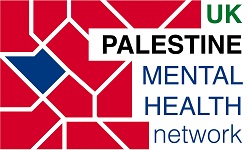“Treating the war Injured child in the Gaza Strip” with Dr Ghassan S. Abu-Sittah, and with the participation of Naji Naji, a Palestinian woundee with a motor disability. They were in conversation with Professor Nadera Shalhoub-Kevorkian.
One of the biggest challenges in reconstructing the war injured child is that their growing body will always try to outgrow the war wound. This phenomenon is as true of physical scars as is it of mental health and social wounds. Israel’s wars on the Gaza Strip are unique in having the highest percentage of children amongst its dead and wounded of the any other conflict in the world. For example, 30% of those killed during the May 2021 assault were children and further 685 were wounded. During the Great Marches of Return 22% of those killed by Israeli army snipers were children (48) with a further 4974 wounded (25%), of whom 1500 were wounded by sniper fire leaving around 35 with amputations.
Dr Abu-Sittar shared his thoughts on the challenges facing the war-injured child, physical and psychological, growing out of his experience working as a surgeon through four deadly assaults on Gaza.
Naji Naji is a member of the Committee for Bicycles for People with Disabilities in Gaza.
The Cafe started with music:
Mr Ghassan Abu-Sittah is a British-Palestinian Associate Professor of Surgery and Plastic & Reconstructive Surgeon. He completed his medical education at University of Glasgow in the U.K. He went on to do his postgraduate residency training in London. After completing his Specialist Registrar training in London he underwent 3 fellowships: Pediatric Craniofacial Surgery at Great Ormond Street Hospital for Sick Kids (GOS); Cleft Surgery at GOS and a further fellowship in Trauma Reconstruction at the Royal London Hospital. In 2011 he was recruited by the American University of Beirut Medical Center. In 2012 he became Head of the Division of Plastic and Reconstructive Surgery at the AUBMC, Clinical Lead of its Pediatric War injuries program and War Injuries Multidisciplinary Clinic. In 2015 co-founded and became director of the Conflict Medicine Program at Global Health Institute at the American University of Beirut. He returned to the UK in 2020 and continues his in Plastic and Reconstructive Surgery in the private sector. He is an Honorary Senior Clinical Lecturer at the Center for Blast Injury Studies at Imperial College University of London and Visiting Senior Lecturer at the Conflict & Health Research Group. He is a consultant for the Operational Trauma Initiative at the World Health Organization’s EMRO Office and serves on the board of directors of INARA, a charity dedicated to providing reconstructive surgery to war injured children in the Middle East, and Board of Trustees of the UK based Medical Aid for Palestinians. He serves on the UK’s National Institute of Health Research (NIHR) International Funding Committee. He has published extensively on the health consequences of prolonged conflict and on war injuries including a medical text book, “Reconstructing the War Injured Patient” and has a forthcoming book, “Treating the War Injured Child.” He has worked as a war surgeon in Yemen, Iraq, Syria, South Lebanon and during the 4 wars in the Gaza Strip. His work was featured by numerous newspapers and media outlets notably La Monde, The Independent, Telegraph, BBC and CNN.
https://edition.cnn.com/2018/05/18/middleeast/gaza-protests-surgeon-intl/index.html
